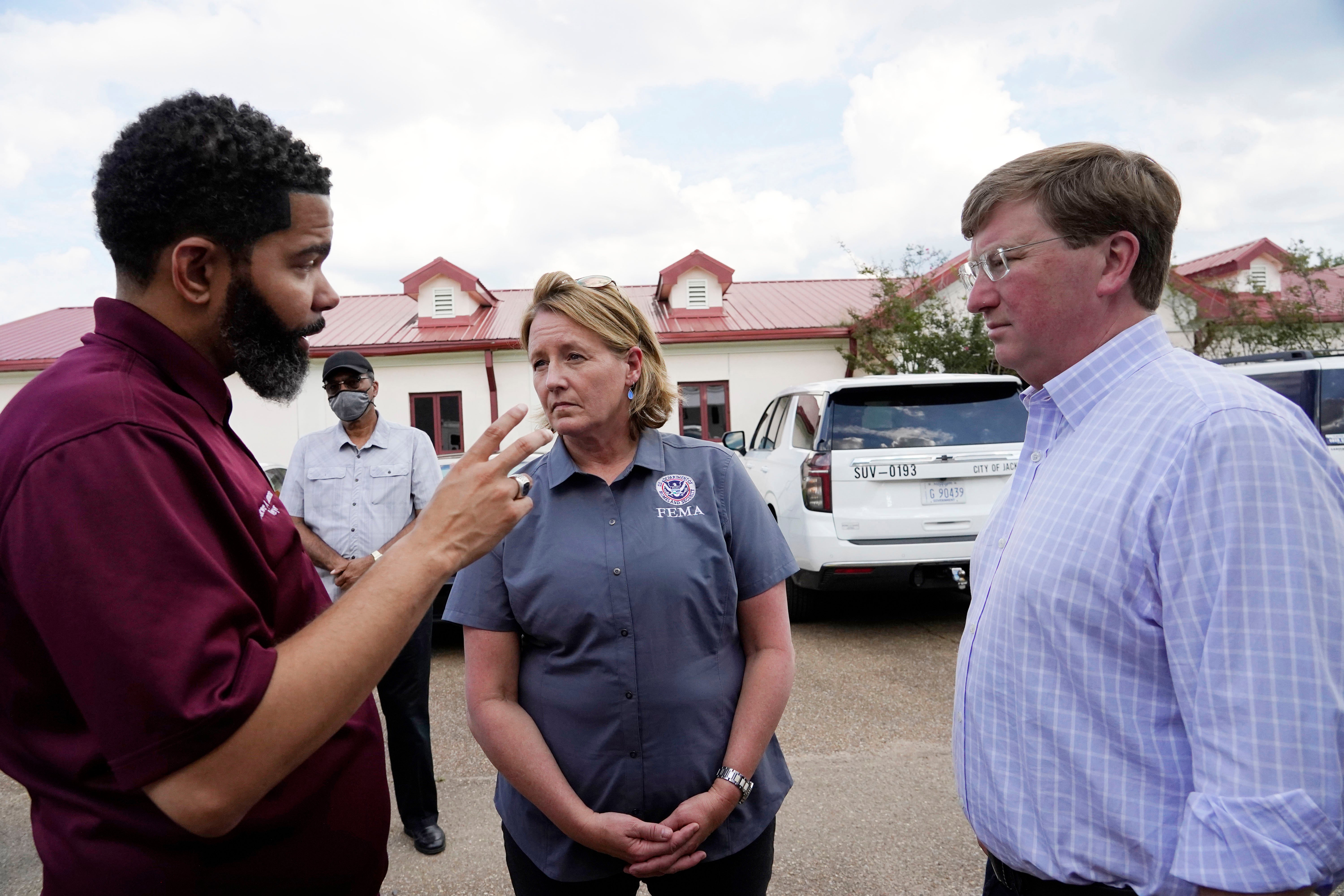Mississippi governor extends Jackson water emergency order
Mississippi Gov. Tate Reeves has extended the state of emergency over the water crisis in the capital city of Jackson

Your support helps us to tell the story
From reproductive rights to climate change to Big Tech, The Independent is on the ground when the story is developing. Whether it's investigating the financials of Elon Musk's pro-Trump PAC or producing our latest documentary, 'The A Word', which shines a light on the American women fighting for reproductive rights, we know how important it is to parse out the facts from the messaging.
At such a critical moment in US history, we need reporters on the ground. Your donation allows us to keep sending journalists to speak to both sides of the story.
The Independent is trusted by Americans across the entire political spectrum. And unlike many other quality news outlets, we choose not to lock Americans out of our reporting and analysis with paywalls. We believe quality journalism should be available to everyone, paid for by those who can afford it.
Your support makes all the difference.Mississippi Gov. Tate Reeves has extended the state of emergency over the water crisis in the capital city of Jackson. On the same day the emergency declaration was set to expire, Reeves said the state of emergency he declared on Aug. 30 would remain in place until Nov. 22.
Reeves and Jackson Mayor Chokwe Antar Lumumba have traded barbs over how much control the state and city will have to decide on a private firm to operate Jackson’s water system over the long term. City officials say an operator will be in place by Nov. 17, although a plan has yet to be finalized.
Reeves said extending the state of emergency would allow for a five-day transition period between the state’s management team and a private firm that will be chosen to operate the water system over the long term.
Jackson's water system has been beset by problems for decades, and the latest troubles began in late August after heavy rainfall exacerbated problems in the city’s main treatment plant, leaving many customers without running water. Jackson had already been under a boil-water notice since late July because the state health department found cloudy water that could make people ill.
Jackson's water crisis left most homes and businesses in the city without running water for several days in late August and early September. Since that time, “the state has invested nearly $13 million to prop up Jackson’s failing water system, distribute water, and restore clean running water to the residents of the city,” Reeves said.
President Joe Biden approved a federal emergency declaration on Aug 30. Volunteers and the National Guard distributed millions of bottles of drinking water. Water pressure has been restored, and the city's boil-water notice was lifted in mid-September. But many residents remain skeptical about water safety in the city.
The Environmental Protection Agency announced in October that it is investigating whether Mississippi state agencies have discriminated against Jackson by refusing to fund water system improvements in the city of 150,000, where more than 80% of residents are Black and about a quarter of the population lives in poverty. Two congressional committees have also started a joint investigation into the crisis.
Lumumba's office declined to comment Friday.
___
Michael Goldberg is a corps member for the Associated Press/Report for America Statehouse News Initiative. Report for America is a nonprofit national service program that places journalists in local newsrooms to report on undercovered issues. Follow him on Twitter at twitter.com/mikergoldberg.